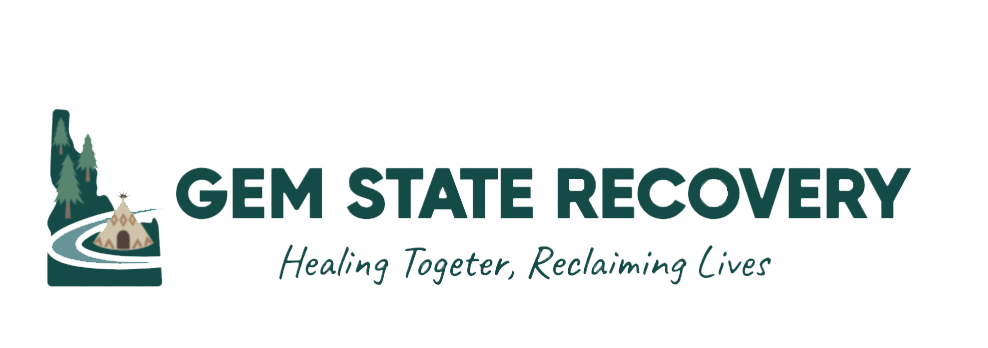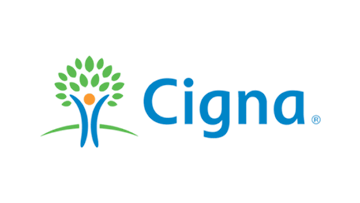
What is Pocatello Alcohol Addiction Treatment Gem State?
Alcohol addiction, or alcoholism, is a chronic disease characterized by the inability to control or abstain from alcohol use despite adverse social, occupational, or health consequences. It’s a complex condition that can be influenced by genetics, environment, and psychological factors. At Gem State Recovery, we understand that alcohol addiction is not just a “lack of willpower” but a medical condition that requires comprehensive treatment
People struggling with alcohol addiction may find themselves drinking more and for longer periods than intended, having a persistent desire to cut down or stop drinking without success, and spending a great deal of time obtaining, using, and recovering from the effects of alcohol. They often continue to drink despite knowing it’s causing problems in their lives – damaging relationships, affecting job performance, and leading to legal troubles.
Physical dependence on alcohol can develop with prolonged use, leading to withdrawal symptoms when not drinking. These can include sweating, shaking, anxiety, depression, nausea, and even seizures in severe cases. Psychological dependence is also common; many feel they cannot function or relax without alcohol.
How We Treat Pocatello Alcohol Addiction Treatment Gem State
Embarking on a journey to overcome alcohol addiction is a courageous step, and Gem State Recovery is committed to providing a supportive and healing environment for this transformative process. Our approach is holistic, addressing not just the physical aspects of addiction, but also the emotional and psychological components that are critical to achieving long-lasting recovery.
At Gem State Recovery, we understand that each individual’s path to sobriety is unique. That’s why we offer personalized treatment plans tailored to meet the specific needs and goals of each person who walks through our doors. Our team of experienced professionals employs evidence-based therapies such as Cognitive Behavioral Therapy (CBT), Dialectical Behavior Therapy (DBT), and motivational interviewing, among others, to help clients understand the root causes of their addiction and develop healthier coping mechanisms.
Our facility provides a serene and welcoming atmosphere where individuals can focus wholly on their recovery without the distractions of everyday life. From private counseling sessions to group therapy and family support programs, we offer a comprehensive range of services designed to heal the mind, body, and spirit. Furthermore, we emphasize the importance of building a strong community of support, encouraging connections with peers who are on similar paths towards recovery.
Choosing Gem State Recovery means choosing a partner dedicated to your success in overcoming alcohol addiction. Our commitment to compassion, confidentiality, and excellence ensures that every person receives the highest quality care from the moment they reach out for help. Let us accompany you on your journey to reclaim your life from alcohol addiction; together, we can achieve lasting sobriety and wellness.
Our Addiction Treatment Programs
We only use proven clinical services to treat our patients, ensuring the highest level of care and success rates. Our team consists of highly trained therapists and doctors who specialize in a variety of mental health and addiction issues.
Clinical Services We Use for Treatment
At Gem State Recovery, we understand the struggles individuals and loved ones face when reaching out for assistance. Our dedication is to cultivate a welcoming and supportive environment for our patients, prioritizing their well-being. Our goal is to provide inclusive and effective therapy services to everyone in need.

Cognitive Behavioral Therapy (CBT)
Cognitive behavioral therapy (CBT) approach is a therapeutic method that focuses on the intricate relationship among thoughts, emotions, and behaviors.

Dialectical Behavioral Therapy (DBT)
Dialectical behavioral therapy (DBT) is frequently employed as a treatment method, particularly benefiting individuals diagnosed with borderline personality disorder.

Educational Groups
Educational groups are a key part of our healing process, providing participants with the opportunity to learn about addiction, mental health, and coping strategies in a supportive setting.

Experiential Therapy
Experiential Therapy at Gem State Recovery provides a powerful path to healing. Through activities such as role-playing, guided imagery, and outdoor adventures, clients connect deeply with their emotions and experiences.

Eye Movement Desensitization and Reprocessing (EMDR)
The EMDR psychotherapy approach is a valuable method that has demonstrated effectiveness in treating trauma-related disorders like post-traumatic stress disorder (PTSD).

Family Support
At Gem State Recovery, we firmly believe that involving family in the recovery journey is crucial for individuals to maintain lasting healing and build stronger family bonds.

Group Therapy
Group therapy at Gem State Recovery offers a supportive space for sharing, learning, and developing coping strategies with expert guidance, fostering healing and long-term recovery.

Individual Therapy
Gem State Recovery’s Individual Therapy provides personalized, one-on-one support in a safe, confidential space, helping clients explore their thoughts and feelings while developing coping strategies for growth and healing.

Intervention Assistance
We understand the challenges of addiction and the courage it takes to seek help. Our Intervention Assistance program helps guide families through the delicate process of encouraging a loved one to enter treatment.

Medication Management
Medication management is tailored to support each person's recovery journey. Our healthcare team combines compassion and expertise to ensure safe, effective medication use, adjusting treatment to fit individual needs.

Motivational Interviewing (MI)
Motivational Interviewing (MI) is a therapeutic approach that places the client at the center, with a key focus on enhancing an individual's motivation and readiness for change.

Relapse Prevention
Relapse prevention entails honing strategies and skills to effectively navigate triggers, cravings, and high-risk situations that might precipitate a relapse into substance use.
We Work With Most Major Insurance Providers
We are committed to providing accessible and effective care to all who come to our center. We understand the challenges of facing addiction and mental health issues without the extra stress of financial concerns. That's why we work closely with your insurance provider to maximize your treatment coverage.
Get Help For a Loved One
Don’t hesitate to reach out – make this call the one that changes everything.
Get the Guidance You NeedGet Help For Yourself
Don't hesitate to reach out – let this call be the one that changes it all.
Take the First StepFAQ
We've compiled a list of frequently asked questions to provide clarity on the experience and alleviate any remaining fears or anxieties you might have.
A typical detox phase typically lasts about five days, although this timeframe can range from three to 10 days depending on individual circumstances. Factors such as the type and amount of substances consumed, the duration and frequency of use, and the method of intake all play a role. Together, these variables determine how long the detox process should last for either yourself or a loved one.
During treatment, a structured and nurturing environment facilitates physical, mental, and emotional healing. The day commences with a wholesome breakfast, followed by therapy sessions, group activities, and workshops addressing the underlying causes of addiction. These encompass individual counseling, group and family therapy, physical exercise, educational talks, and recreational activities. Throughout the day, there are well-balanced meals, moments for reflection and relaxation, and chances for personal growth through journaling or meditation. Evenings may involve peer support meetings or 12-step programs, concluding with time for rest. Each day at our centers is meticulously crafted to promote comprehensive recovery, empowering individuals to foster positive habits and coping mechanisms.
When starting treatment, it's crucial to bring along comforting and supportive items. These can range from comfy clothes and personal care essentials to prescribed medications (with proper documentation) and materials like journals or books for reflection. Conversely, addiction treatment centers have restrictions on what can be brought in. Prohibited items typically include drugs, alcohol, weapons, or anything that could impede recovery. To ensure a smooth entry into treatment, it's essential to consult the chosen facility beforehand for a comprehensive list of allowed and banned items.
Recognizing the strong link between addiction and mental health challenges, our addiction treatment centers prioritize addressing underlying mental health issues. With a dedicated team offering personalized support and therapy for conditions such as depression, anxiety, PTSD, and more, we take a holistic approach to recovery, focusing on both physical and mental well-being. Our admissions team is committed to matching you with the perfect facility for comprehensive care, ensuring a successful healing journey. You can rely on us for steadfast support as you navigate towards lasting sobriety and improved mental wellness.
Our admissions team is dedicated to helping you discover the ideal treatment center tailored to your needs. The decision to choose a rehab facility can be daunting, but our team is here to provide guidance. With compassion and expertise, our professionals comprehend the intricacies of addiction and the significance of selecting the appropriate treatment. By considering your unique requirements, preferences, and any co-occurring conditions, we aim to match you with a facility that offers personalized care. You are not alone in this journey – our admissions team is committed to supporting you every step of the way towards a successful recovery.
Watching a loved one fight addiction can be heartbreaking and overwhelming. Feeling powerless and unsure of how to help is common. The first step in supporting your loved one is to have an open conversation about their addiction. Share your concerns, offer your support, set boundaries, and encourage them to seek professional help. Exploring treatment options together and ensuring access to resources can also be beneficial.
Remember, patience, empathy, and unwavering support are key on this journey. Recovery takes time. By taking a compassionate and supportive approach, you can help guide your loved one toward a healthier, addiction-free life. Don't hesitate to reach out for guidance and support from our team; we are here to assist you and your loved one at every stage of the recovery process.
No matter how dedicated you are to your recovery journey or how determined you are to maintain sobriety, relapses can happen. According to the National Institute on Drug Abuse, relapse rates in recovery range from 40% to 60%. After a relapse, it's common to feel shame and regret, and you might even contemplate giving in to addiction rather than fighting the urge to use. While these feelings are normal, they can impede progress towards a drug-free life. Instead of seeing a relapse in a negative light, view it as a learning opportunity. Refine your relapse prevention strategies and identify triggers. By understanding the underlying causes of the relapse, you set the stage for a stronger recovery journey.
The initial step involves assessing the need to return to rehab. If the relapse was an isolated incident and you are willing to review or adjust your recovery plan, going back to an inpatient facility may not be necessary. Such a setting provides hands-on care and continuous monitoring. However, falling back into a recurring pattern of substance misuse may indicate the need to re-enter a structured treatment program. If discussions about substance use resurface, socializing with individuals who encourage drinking, or turning to substances for coping, it indicates a more severe issue that requires immediate attention.
Upon re-entering treatment after a relapse, the main focus should be on reintegrating into daily life. Choosing a sober living environment for a few months post-treatment could be the most effective way to prevent relapse, as accountability and structure are beneficial during the initial vulnerable phase. Additionally, having an outpatient therapy plan for ongoing support after rehab is advantageous.
Take the First Step - Verify Your Insurance
Breaking free from addiction doesn't need to be daunting. By taking the first step of completing the form, you embark on the journey towards a healthier recovery. Our support and expert care are fundamental during the initial stages of treatment.




















